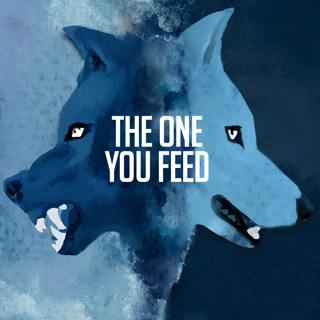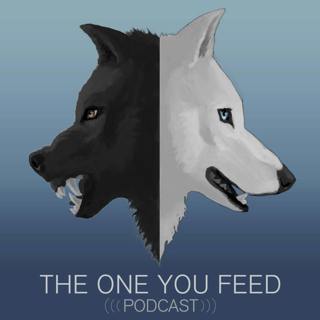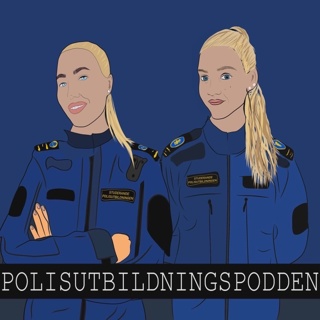
Can Radical Hope Save Us from Despair in a Fractured World? with Jamie Wheal
In this episode, Jamie Wheal explores the question of “Can radical hope save us from despair in a fractured world?” He argues that most of the feel-good positivity we are sold is useless when facing real crises, from climate collapse to meaninglessness. But there is a kind of hope that survives contact with brutal reality. Get Weekly Bites of Wisdom delivered to your inbox. Every Wednesday, you’ll receive a short, practical email that distills the big ideas from different episodes on topics like mental health, relationships, anxiety, and purpose – into bite-sized practices you can use right away. It’s free, takes about a minute to read. You’ll also receive a Weekend Podcast playlist every Friday to ensure you don’t miss an episode! Join now at oneyoufeed.net/newsletter. Key Takeaways: The internal and cultural struggle between hope and despair in the context of global crises. The concept of “radical hope” as a resilient form of hope amidst harsh realities. The inadequacy of typical positivity in addressing complex real-world problems. The need for a new “rational mysticism” suitable for the 21st century. The dangers of failing to establish a stable, shared sense of meaning in society. The critique of hyper-individualistic and consumer-driven culture in relation to existential risks. The historical evolution of existential risk narratives and their implications for modern society. The importance of community and connection in fostering healing and growth. The challenges of creating secular communities that provide meaningful structure and belonging. The potential for a revived Western rational mysticism to address contemporary spiritual needs and crises. If you enjoyed this conversation with Jamie Wheal, check out these other episodes: How to Overcome Cynicism and Embrace Hope with Jamil Zaki Human Nature and Hope with Rutger Bregman For full show notes, click here! Connect with the show: Follow us on YouTube: @TheOneYouFeedPod Subscribe on Apple Podcasts or Spotify Follow us on Instagram See Privacy Policy at https://art19.com/privacy and California Privacy Notice at https://art19.com/privacy#do-not-sell-my-info. Learn more about your ad choices. Visit megaphone.fm/adchoices
15 Juli 20251h 8min

Is Stress Speeding Up Your Aging? What You Can Do About It Today with Elissa Epel
In this episode, Elissa Epel explores how stress can speed up aging and what you can do about it. She explains telomeres, which are those protective caps on our chromosomes, shorten with stress and poor habits, speeding up aging and disease. She also delves into the science of how thought patterns, diet, and even our response to daily challenges can literally change our biology. Want to stay intentional in your daily life? Sign up for Good Wolf Reminders—free, thoughtful text messages from Eric that land once or twice a week. Each message offers a quick burst of insight to help you pause, reflect, and feed your good wolf. No spam. Easy to opt out anytime. Join nearly 5,000 others at oneyoufeed.net/sms.Key Takeaways: The science of telomeres and their role in cellular aging. The impact of stress and lifestyle choices on telomere length and overall health. The relationship between genetics and environmental factors in health outcomes. The concept of “inflammaging” and its connection to chronic inflammation and aging. The influence of diet on telomere maintenance and inflammation. The bidirectional relationship between depression and telomere shortening. Strategies for reframing stress as a challenge rather than a threat. The importance of mindfulness and social support in managing stress. The potential risks and benefits of telomerase and its role in telomere health. The significance of making intentional lifestyle choices to influence aging and well-being. If you enjoyed this conversation with Elissa Epel, check out these other episodes: How to Shift Your Emotions: Moving from Chaos to Clarity with Ethan Kross Small Steps to Happiness: The Science of Mindful Living with Laurie Santos For full show notes, click here! Connect with the show: Follow us on YouTube: @TheOneYouFeedPod Subscribe on Apple Podcasts or Spotify Follow us on Instagram See Privacy Policy at https://art19.com/privacy and California Privacy Notice at https://art19.com/privacy#do-not-sell-my-info. Learn more about your ad choices. Visit megaphone.fm/adchoices
11 Juli 202539min

From “Why Me?” to “What Now?”: A New Approach to Pain and Growth with Scott Barry Kaufman
In this episode, Scott Barry Kaufman challenges us to go from asking ourselves “Why Me?” to “What Now?” as he unpacks a new approach to pain and growth. Scott explains how the real work happens in the messy middle as we unpack the dangers of black and white thinking, and why genuine change isn’t about a single epiphany, but a thousand small choices. If you’ve ever wondered how to hold your suffering without letting it define you, or how to spot the agency that you still have, this episode is for you. Every Wednesday, we send out A Weekly Bite of Wisdom – a short, free email that distills the big ideas from the podcast into bite-sized practices you can use right away. From mental health and anxiety to relationships and purpose, it’s practical, powerful, and takes just a minute to read. Thousands already count on it as part of their week, and as a bonus, you’ll also get a weekend podcast playlist to dive deeper. Sign up at oneyoufeed.net/newsletter! Key Takeaways: The concept of a victim mindset and its impact on personal growth. The importance of personal agency and empowerment in overcoming challenges. The balance between acknowledging suffering and recognizing potential for growth. The role of emotions and cognitive distortions in shaping our mindset. Techniques for emotional regulation and reframing negative thoughts. The significance of self-compassion and its role in personal development. The dangers of black-and-white thinking and the need for nuanced perspectives. The relationship between trauma, identity, and self-worth. The process of post-traumatic growth and healing from past experiences. Listener questions addressing limiting beliefs and the fear of the unknown. If you enjoyed this conversation with Scott Barry Kaufman, check out these other episodes: Tasha Eurich on Growing Self-Awareness How to Choose Growth with Scott Barry Kaufman & Jordyn Feingold For full show notes, click here! Connect with the show: Follow us on YouTube: @TheOneYouFeedPod Subscribe on Apple Podcasts or Spotify Follow us on Instagram See Privacy Policy at https://art19.com/privacy and California Privacy Notice at https://art19.com/privacy#do-not-sell-my-info. Learn more about your ad choices. Visit megaphone.fm/adchoices
8 Juli 20251h 2min

Purposeful Living: Strategies to Align Your Values and Actions with Victor Strecher
In this episode, Victor Strecher discusses purposeful living and strategies to align your values and actions. Vic shares his imperfect journey back to meaning and to living for what matters most after losing his daughter. He explores what it means to be purposeful versus just having a purpose, how energy and vitality play a role in living out our values, and why purpose isn’t just for the privileged. For the first time in over three years, I’ve got a couple open spots in my coaching practice. If you’re a thoughtful business owner, creator, or leader feeling stuck in scattered progress or simmering self-doubt, this might be the right moment. Through my Aligned Progress Method, I help people move toward real momentum with clarity, focus, and trust in themselves. If that speaks to where you are, you can learn more at oneyoufeed.net/align. Key Takeaways: The significance of purpose in life and its impact on well-being. Personal experiences of loss and grief, particularly the impact of losing a loved one on understanding purpose. The distinction between values, purpose, and meaning, and how they interconnect. The role of energy and vitality in living a purposeful life, including factors like sleep, mindfulness, and nutrition. The concept of mortality salience and its influence on identifying core values and priorities. Practical methods for discovering and articulating one’s purpose, such as the headstone test. The accessibility of purpose for everyone, regardless of socioeconomic status. The relationship between purpose and happiness Encouragement for self-reflection and intentionality in daily life to align actions with personal values. If you enjoyed this conversation with Victor Strecher, check out these other episodes: How to Create a Life Strategy for Meaningful Change with Seth Godin How to Shift Your Emotions: Moving from Chaos to Clarity with Ethan Kross For full show notes, click here! Connect with the show: Follow us on YouTube: @TheOneYouFeedPod Subscribe on Apple Podcasts or Spotify Follow us on Instagram See Privacy Policy at https://art19.com/privacy and California Privacy Notice at https://art19.com/privacy#do-not-sell-my-info. Learn more about your ad choices. Visit megaphone.fm/adchoices
4 Juli 20251h 9min

Escape the Goal Trap: Embrace Curiosity and Tiny Experiments with Anne-Laure Le Cunff
In this episode, Anne-Laure Le Cunff, discusses how to go from procrastination to action using the power of tiny experiments. Most advice about self-improvement assumes you know where you’re going, but what if you don’t? Anne-Laure suggests that’s not a flaw, it’s actually the starting point. Her new book, Tiny Experiments, offers a way to explore change without chasing outcomes. In our conversation, we talk about curiosity as a guide, how to stay engaged in uncertainty, and what it means to choose persistence. For the first time in over three years, I’ve got a couple open spots in my coaching practice. If you’re a thoughtful business owner, creator, or leader feeling stuck in scattered progress or simmering self-doubt, this might be the right moment. Through my Aligned Progress Method, I help people move toward real momentum with clarity, focus, and trust in themselves. If that speaks to where you are, you can learn more at oneyoufeed.net/align. Key Takeaways: Importance of curiosity and exploration in personal growth Conducting small experiments to challenge the status quo Embracing uncertainty and learning from emotions Distinction between passive and active acceptance of challenges The concept of “field notes” for self-reflection and observation Understanding and labeling emotions to reduce anxiety Addressing procrastination through curiosity and exploration The iterative process of growth loops and adjusting one’s trajectory The significance of taking actionable steps in the present Developing mini protocols or “pacts” for personal experimentation If you enjoyed this conversation with Anne-Laure Le Cunff, check out these other episodes: The Power of Visualization to Achieve Your Goals with Emily Balcetis Why We Stop Noticing What Matters and How to Feel Alive Again with Tali Sharot For full show notes, click here! Connect with the show: Follow us on YouTube: @TheOneYouFeedPod Subscribe on Apple Podcasts or Spotify Follow us on Instagram See Privacy Policy at https://art19.com/privacy and California Privacy Notice at https://art19.com/privacy#do-not-sell-my-info. Learn more about your ad choices. Visit megaphone.fm/adchoices
1 Juli 20251h

The Hidden Cause of Procrastination and How to Finally Move Forward with Taylor Jacobson
In this episode, Taylor Jacobson discusses the hidden cause of procrastination and how to finally move forward in your life. He explores how transformation rarely feels graceful, how repressed emotions shape our behavior, and what it takes to live a life true to your inner compass. It’s a vulnerable, grounded conversation about fear, reinvention, and creating space for what you actually want to give to the world. For the first time in over three years, I’ve got a couple open spots in my coaching practice. If you’re a thoughtful business owner, creator, or leader feeling stuck in scattered progress or simmering self-doubt, this might be the right moment. Through my Aligned Progress Method, I help people move toward real momentum with clarity, focus, and trust in themselves. If that speaks to where you are, you can learn more at oneyoufeed.net/align. Key Takeaways: Importance of experiencing and releasing emotions for personal growth The concept of safety in productivity and its impact on focus Overview of Focusmate as a solution for procrastination and accountability The role of community support in overcoming distractions and enhancing productivity The significance of vulnerability in seeking help and building connections The principles of behavior change, including commitment and accountability The relationship between emotional well-being and productivity The challenges of transformation and the necessity of aligning with one’s true self The exploration of intuition and discernment in navigating emotions and decision-making If you enjoyed this conversation with Taylor Jacobson, check out these other episodes: How to Overcome Procrastination with Tim Pychyl David Kadavy on Getting Started For full show notes, click here! Connect with the show: Follow us on YouTube: @TheOneYouFeedPod Subscribe on Apple Podcasts or Spotify Follow us on Instagram See Privacy Policy at https://art19.com/privacy and California Privacy Notice at https://art19.com/privacy#do-not-sell-my-info. Learn more about your ad choices. Visit megaphone.fm/adchoices
27 Juni 202558min

The Quiet Pain of Self-Loathing and Finding the Courage to Face It with Sarah Gormley
In this episode, Sarah Gormley discusses the quiet pain of self-loathing and finding the courage to face it. Sarah had it all – a thriving corporate career, success, and admiration. But beneath was a quiet, relentless self-loathing she couldn’t shake. In her memoir, The Order of Things, Sarah shares the profound turning point at 40 when she finally asked, is this how it’s going to feel forever? She unpacks why therapy isn’t linear, how grief can deepen gratitude, and the freedom that comes when we stop performing and start genuinely living. Feeling stuck? It could be one of the six saboteurs of self-control—things like autopilot, self-doubt, or emotional escapism. But here’s the good news: you can outsmart them. Download the free Six Saboteurs of Self-Control ebook now at oneyoufeed.net/ebook and start taking back control today! Key Takeaways: Journey of self-discovery and self-acceptance Importance of mental health and therapy Struggles with self-loathing and emotional challenges Impact of grief on personal growth and gratitude Relationship dynamics and self-worth Caregiving experiences and their emotional complexities Navigating grief while supporting others The role of compassion in healing Tools for managing negative self-talk and thought patterns The interplay of environment, genetics, and personal agency in shaping identity If you enjoyed this conversation with Sarah Gormley, check out these other episodes: How to Tame Your Inner Critic with Dr. Aziz Gazipura How to Practice Self Compassion with Dr. Shauna Shapiro For full show notes, click here! Connect with the show: Follow us on YouTube: @TheOneYouFeedPod Subscribe on Apple Podcasts or Spotify Follow us on Instagram See Privacy Policy at https://art19.com/privacy and California Privacy Notice at https://art19.com/privacy#do-not-sell-my-info. Learn more about your ad choices. Visit megaphone.fm/adchoices
24 Juni 20251h 7min

Why We Stop Noticing What Matters and How to Feel Alive Again with Tali Sharot
In this episode, Tali Sharot explains why we stop noticing what matters and how to start feeling alive again. She describes what habituation is and how our minds normalize what once moved us. Tali also explores ways that we can reawaken joy, purpose, and even moral clarity. It’s an eye-opening look at the subtle ways we lose and then can reclaim our aliveness. Feeling stuck? It could be one of the six saboteurs of self-control—things like autopilot, self-doubt, or emotional escapism. But here’s the good news: you can outsmart them. Download the free Six Saboteurs of Self-Control ebook now at oneyoufeed.net/ebook and start taking back control today! Key Takeaways: Concept of habituation and its effects on emotional responses Importance of noticing the extraordinary in everyday life Strategies for counteracting habituation, such as taking breaks and diversifying experiences Relationship between habituation and creativity Impact of social media on emotional well-being and habituation Exploration of habits and addiction, particularly in relation to social media Discussion on the nature of lying and habituation to dishonesty The balance between exploration and exploitation in personal experiences The complexities of human emotions and expectations, particularly regarding women’s rights and happiness Encouragement to experiment with life choices to enhance well-being and fulfillment If you enjoyed this conversation with Tali Sharot, check out these other episodes: How to Stop Losing Your Mind (Literally): The Surprising Science of Attention with Amishi Jha How to Create Elastic Habits that Adapt to Your Day with Stephen Guise For full show notes, click here! Connect with the show: Follow us on YouTube: @TheOneYouFeedPod Subscribe on Apple Podcasts or Spotify Follow us on Instagram See Privacy Policy at https://art19.com/privacy and California Privacy Notice at https://art19.com/privacy#do-not-sell-my-info. Learn more about your ad choices. Visit megaphone.fm/adchoices
20 Juni 20251h 7min






















